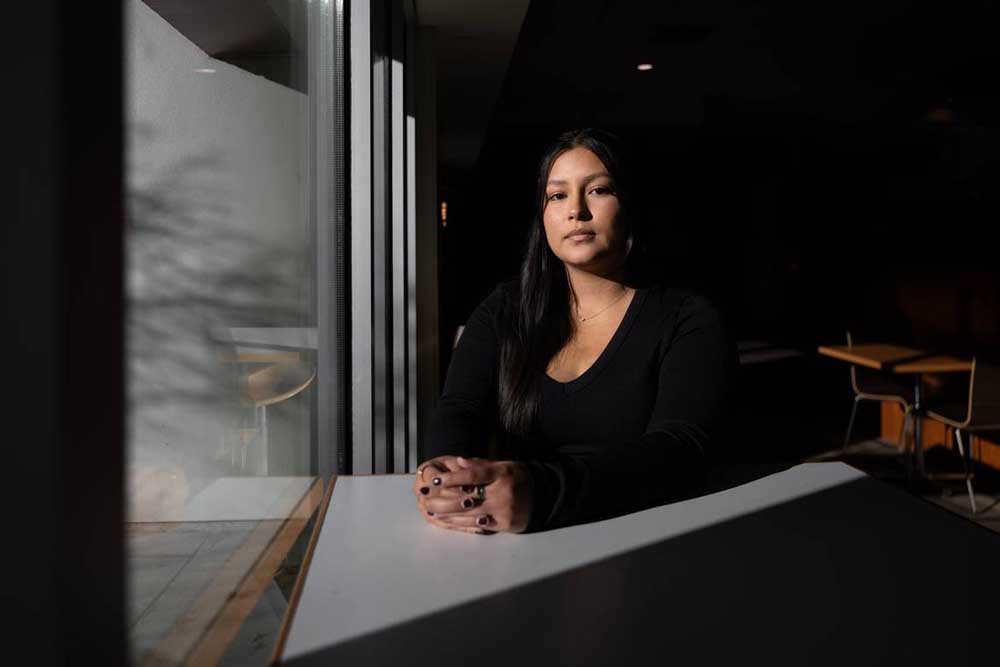Guest column: We must protect students from immigration sweeps
Published 9:00 pm Thursday, January 23, 2025

- Sacramento State student Jenni Hernandez, who came to California as an undocumented immigrant 22 years ago as a one-year-old, sits on campus on Jan. 16.
In 1987, Oregon became the first sanctuary state in the nation. This law restricts all government officials from helping enforce federal immigration laws without a judicial order. Today, there are 11 sanctuary states plus Washington D.C.
The current sanctuary schools and safe zone policy movement is happening in both sanctuary and non-sanctuary states. When school boards pass a safe zone or similar policy, they are simply fine tuning how school districts will deal with immigration officials attempting to gain access to schools and student information. The policies reaffirm the right to equal access to education for all students, and can help schools provide a safe, stable and supportive space in their lives. In its January 9, 2025, board meeting, the Philomath School District adopted such a policy. On January 14, 2025, the Bend-La Pine School Board also passed a similar resolution.
Trending
Thank you for your January 14 editorial asking what should happen if immigration agents show up at our schools in Bend. The children are often an afterthought in discussions about immigration, and your editorial helped bring them to the forefront of this multi-faceted and complex issue.
I am a retired special education teacher. For almost 40 years, I loved and taught hundreds of children who were identified as some of the most psychologically fragile, vulnerable and “difficult” in my district. Chronic and extreme social-emotional and behavior issues were the primary reasons my students qualified for special education services — and those issues were often compounded by secondary academic and communication issues.
I believed in every one of my students, treated them as human beings, and provided them with a positive and welcoming environment every day. There was never a question that my students needed to feel extra safe at school. This was achieved by providing a stable, predictable and nurturing environment. A sense of safety and trust was imperative so that they could concentrate, learn, be productive, engage, form relationships and be successful.
No child should experience chronic fear and anxiety about what tomorrow may bring, but the immigration issues created by our political system have sadly led to this very situation for many undocumented children. In December 2024, the National Education Association reported that undocumented students typically have chronic and intense difficulties in school, which include high rates of absenteeism, social-emotional problems, and academic failure. I believe that it is our socio-political environment that is disturbed and disruptive, rather than the undocumented students. They are simply reacting to the pathology of a dysfunctional immigration system with fear and anxiety.
Thankfully, we have a very diligent and proactive school board that has recently taken steps to increase the safeguards for undocumented students. Resolution #1982 with its five components will most definitely strengthen a student’s sense of protection, stability, and predictability in school. I am grateful our school board widened the safety net for undocumented students.
In his first term, President Trump fully supported Stephen Miller’s cruel and inhumane treatment of immigrants. Doubling down in his second term, his racist rhetoric and demonization of undocumented immigrants has returned with a vengeance. Tom Homan, the new border czar, as he is called, promises to deport entire families. This includes the illegal deportation of U.S. and naturalized citizens within those families. Terror and cruelty are their point — and threats and intimidation are their punitive means.
Trending
For at least the next two years, we cannot make the mistake of not doing anything because we cannot do enough. There is much work to do, and it started yesterday.
Do you have a point you’d like to make or an issue you feel strongly about? Submit a letter to the editor or a guest column.








